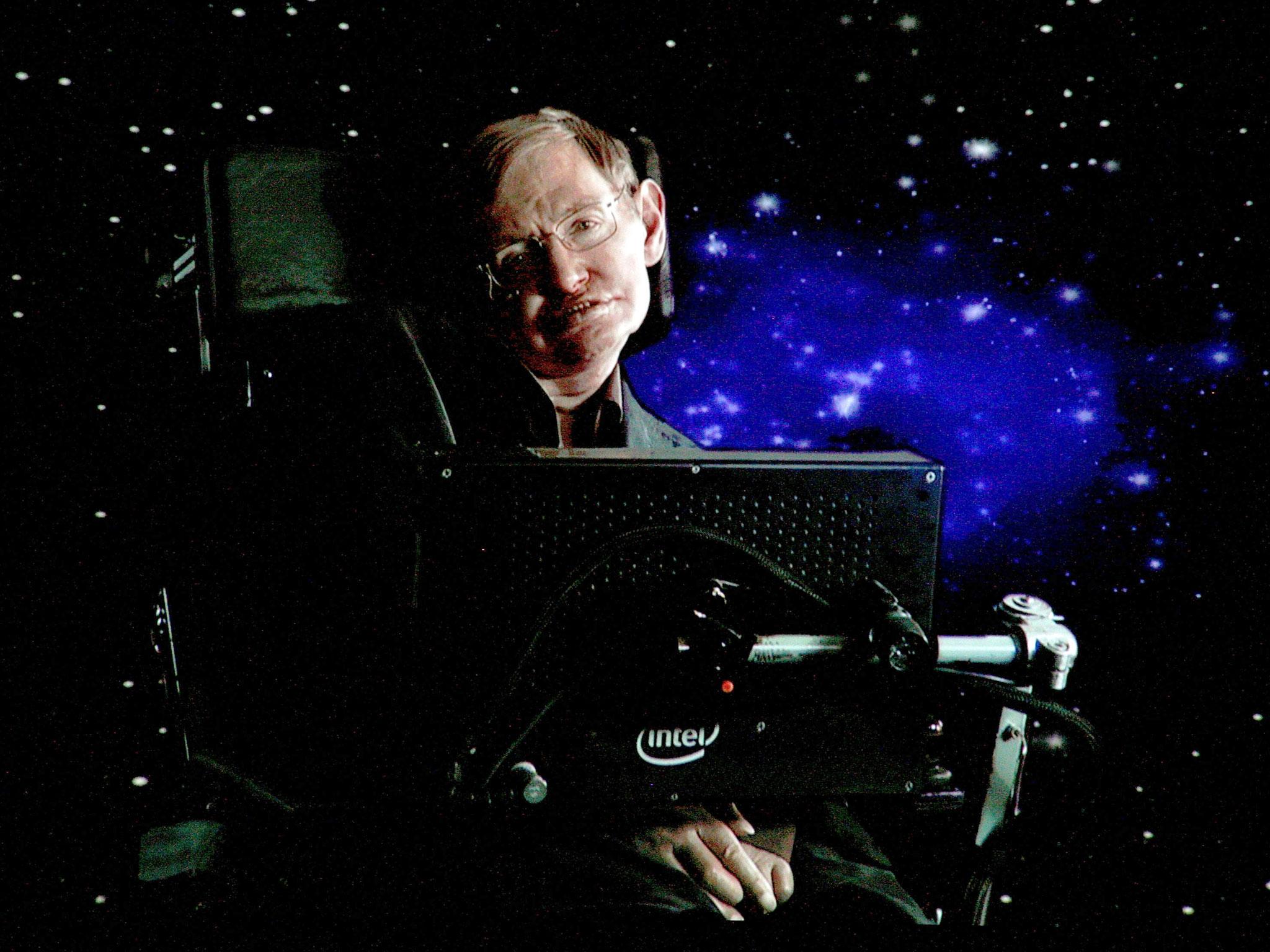The Reith Lectures, review: Professor Stephen Hawking's science lesson made me long for a lie-down
The professor reflected on the history of scientific thought around black holes from Einstein to Oppenheimer

Your support helps us to tell the story
From reproductive rights to climate change to Big Tech, The Independent is on the ground when the story is developing. Whether it's investigating the financials of Elon Musk's pro-Trump PAC or producing our latest documentary, 'The A Word', which shines a light on the American women fighting for reproductive rights, we know how important it is to parse out the facts from the messaging.
At such a critical moment in US history, we need reporters on the ground. Your donation allows us to keep sending journalists to speak to both sides of the story.
The Independent is trusted by Americans across the entire political spectrum. And unlike many other quality news outlets, we choose not to lock Americans out of our reporting and analysis with paywalls. We believe quality journalism should be available to everyone, paid for by those who can afford it.
Your support makes all the difference.We have, in recent years, seen a softening of the Reith Lectures, that annual institution that could formerly be relied upon to put the plebs in their place by getting Oxbridge-educated fossils to expound on complex matters from on high.
But then came Grayson Perry, who brought with him wild applause, joyful hooting and refreshingly democratic ideas as he skewered the snobbishness of the artistic elite. Last year's talk from the surgeon Atul Gawande was lighter on jokes but at least matched Perry's in terms of accessibility and humanity.
This year is Professor Stephen Hawking's turn and his subject for his first talk was black holes, the very prospect of which made me long for a lie-down. But I bravely remained upright, partly for the sake of this column but also, I told myself, because this was a Reith Lecture and perhaps for the first time I had an opportunity to wrap my pea brain around this mysterious phenomenon that, as Hawking pointed out, is weirder than anything science fiction has come up with. Ah well. Perhaps if I hadn't flunked GCSE physics I might have had a shot.
Things started off well enough, with some peppy small talk between Hawking and the host Sue Lawley. But it was the phenomenon of stars collapsing in on themselves that preoccupied the professor and listening to him reflect on the history of scientific thought around black holes (formerly known as "frozen stars") from Einstein to Oppenheimer, my mind frequently fogged over and I was reminded of Homer Simpson complaining that space in his brain was limited and how, every time he learned something new, something else fell out.
That's not to say that I didn't learn anything. I now know that if an astronaut falls into a large black hole there's a chance they could live to tell the tale, but if they fall into a small one they will be "torn apart and made into spaghetti". I know that Einstein got a bit cross when it was asserted that spacetime is smooth and flat, though when Hawking said "in fact it marks the end of time itself" my brain collapsed in on itself and created its own swirling black hole.
If I'm disappointed at my own inability to grasp such concepts, I'm more dispirited still that the Reith Lectures, which seemed for a while to be reaching out to new audiences and becoming more intellectually inclusive, has reverted to the rarefied discourse of old. After all, as Grayson Perry demonstrated, it's possible to tackle big ideas with intelligence and a lightness of touch. It's worth noting that there were schoolchildren in the audience, a fact that underlined the importance of appealing to young minds. But here Hawking wasn't so much trying to win over new converts as addressing those already in the know.
Perhaps they should have asked the pop star-turned-scientist Brian Cox instead. In Radio 4's long-running The Infinite Monkey Cage, Cox, along with the comic and presenter Robin Ince, takes big scientific ideas and makes them gleefully digestible. This week they looked at the issue of race and how the supposed racial divisions of today are only skin-deep and have little to do with ancestry and DNA. As ever there were jokes and silliness but also mind-boggling facts and startling theories. This is how you do science for the masses.
Join our commenting forum
Join thought-provoking conversations, follow other Independent readers and see their replies
Comments